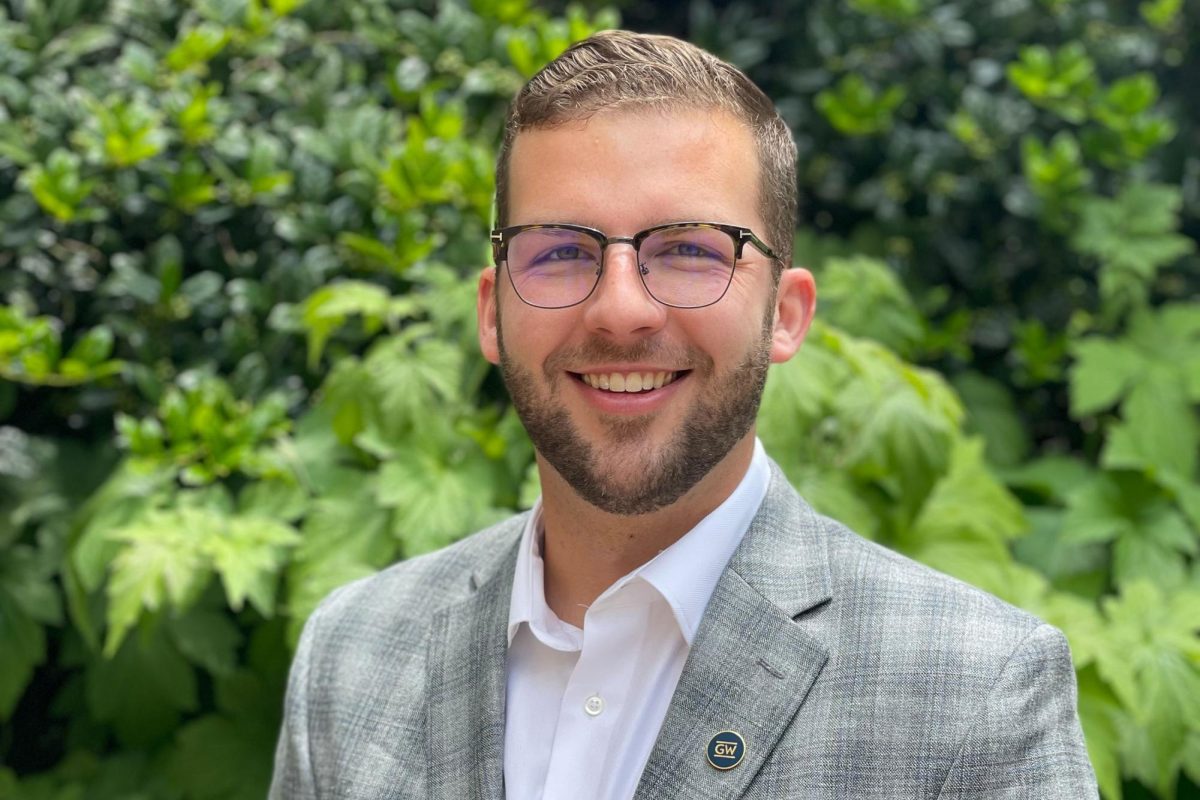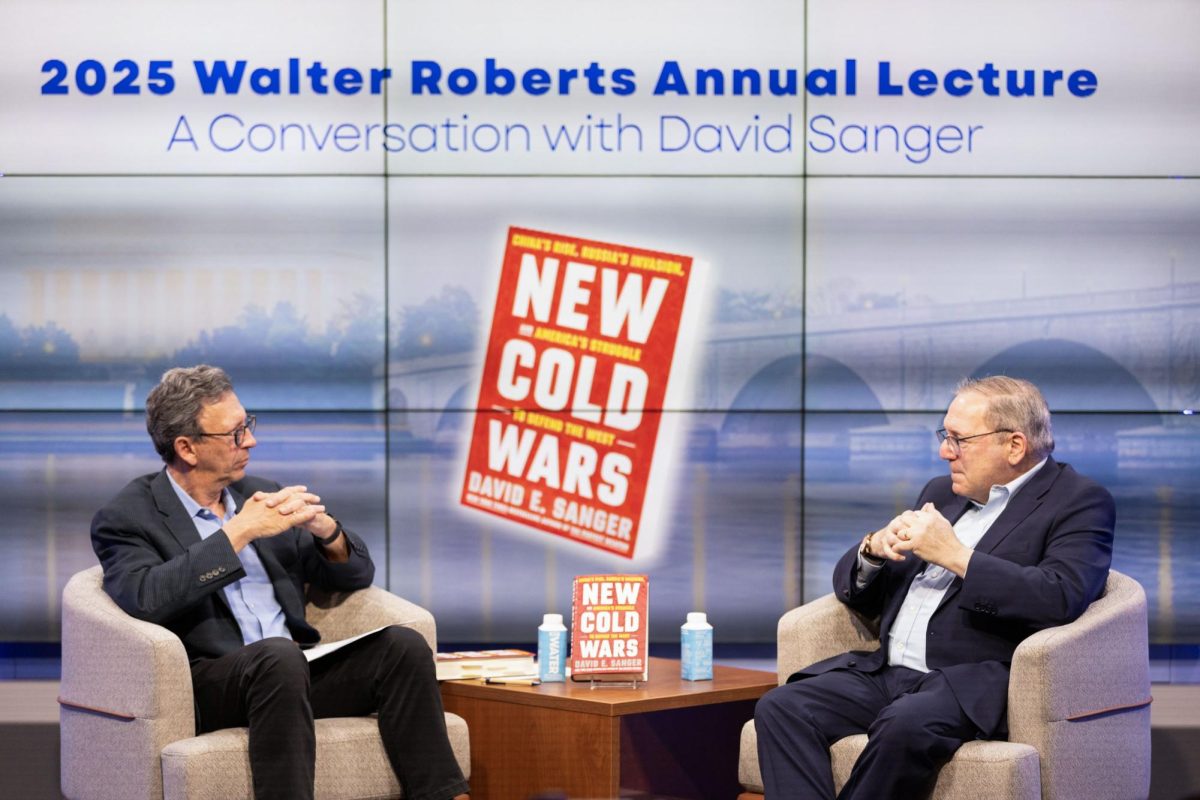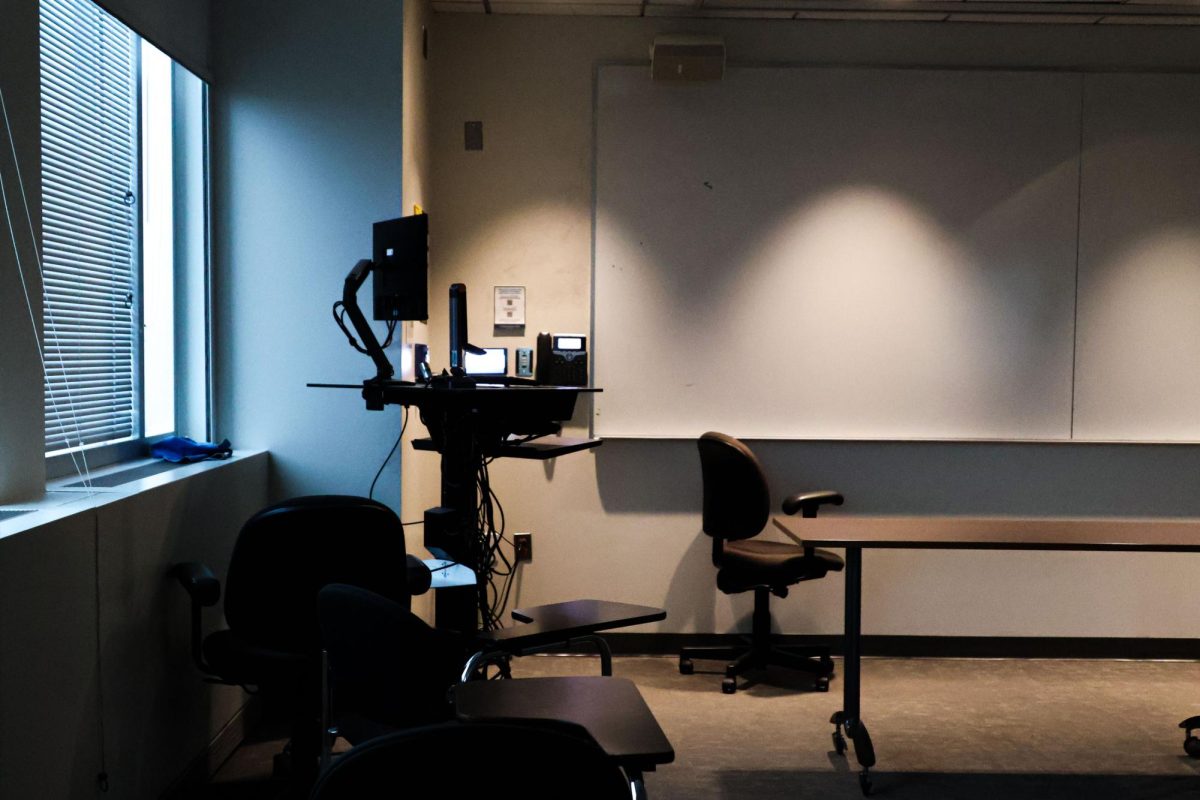GW Alumni Association President Maxwell Gocala-Nguyen came to GW for its academic excellence but stuck around for the inclusive environment that embraced him.
Gocala-Nguyen said he became immersed in the University’s diverse campus as a graduate student, establishing The Store in 2016, a student-run food pantry, and participating in the Student Association to further inclusiveness at GW. In his yearlong term as president, Gocala-Nguyen said he will engage alumni who have not previously engaged with the Alumni Association through formal discussions to bolster engagement in alumni events and act as a “sounding board” to bring alumni opinions to the administration.
Before his Alumni Association presidency, Gocala-Nguyen said he joined the GW LGBTQ+ Alumni Network to connect with other alumni with diverse identities and participated in the Coffee/Dinner with Alumni program, formerly known as ‘Coffee with a Colonial,’ to keep engaging with students on campus.
“It’s been a whirlwind experience and a very quick trajectory,” Gocala-Nguyen said.
He said his presidency comes at a period of transition, with alumni adjusting to GW changes like the new Revolutionaries moniker and the beginning of University President Ellen Granberg’s historic term as the first woman to steer GW as president. He said some alumni feel more engaged with GW than before the moniker change because some did not feel connected to the Colonials moniker.
Gocala-Nguyen said conversations with alumni on what they hope to see out of the University are “easy” because of the excitement surrounding the new moniker or the University’s membership in the Association of American Universities. He said he also wants to voice the thoughts of alumni whose opinions can vary on the University decisions, like those who oppose the Colonials moniker change.
“When there is a difficult conversation about maybe someone didn’t have a great experience, or they had a really bad experience in a residence hall or anything like that, it’s my job to listen,” Gocala-Nguyen said. “We can’t change the past but we can work to make it better for future students or current students.”
Gocala-Nguyen said he recruited an executive committee that represents a diverse array of alumni hailing from all of GW’s schools and colleges, including a graduate who studied fully online, Angela An. This summer, 11 alumni joined the Alumni Association’s executive committee, replacing members who departed at the end of the 2022-23 academic year.
“It’s not just the academic colleges, but how student experiences are portrayed,” Gocala-Nguyen said. “This year, we really have a very, very engaged group. There’s a lot of energy, and it’s very exciting.”
He said 40 percent of GW’s roughly 325,000 alumni are actively engaged with the University, which the association defines as attending at least three alumni events each year. He said he plans to host “Revolutionary Roundtables” with targeted alumni groups of different generations or those with two or three degrees from the University about how to maintain and bolster their cohort’s interactions with alumni and student events.
He added that he will hold conversations with regional alumni representatives to find out how the Alumni Association can best support alumni communities that are not physically close to campus.
“It’s a big thing to listen to people because it takes a lot of time and a lot of effort to be intentional and be present,” Gocala-Nguyen said. “Being able to do that effectively is how I see my tenure.”
He said all students are automatically entered into the Alumni Association upon graduation, but he wants to engage the 60 percent of alumni who are not actively participating to attend events or meet with students for coffee on Zoom.
“Everyone receives a newsletter and everyone has access, we just need people to take the step and join us,” he said.
Zena Chapman, the chair of the GW Black Alumni Network, said she met with the former Alumni Association President William Alexander III about twice during his presidency to voice her visions for Black Alumni Network events. She said she hopes Gocala-Nguyen will continue meeting with alumni affinity leaders, so she can share her visions about expanding mentoring within the Association for graduates looking to switch careers.
Chapman said the Black Alumni Network worked with the Multicultural Student Services Center and the Alumni Association last year to hold a food drive called Stock the Pantry and that the network also hosted a speaker event with the GW Latino Alumni Network. She said she hopes that Gocala-Nguyen will foster collaboration among the affinity alumni groups.
“We would love to hear what are some of his goals, what are some of his visions and certainly making sure that we are in alignment and what we can do to support him in his role as president of the alumni,” Chapman said.
She said Black alumni have expressed feeling “disconnected” from the larger Alumni Association and that more input from the Black Alumni Network in event planning will help bridge the gap.
“I also want to make sure he’d be a strong voice and advocate for affinity groups,” Chapman said. “In order for him to be able to do that, that has to be those initial meetings and so forth.”
Patrick Realiza, a member of the GW Asian and Pacific Islander Alumni Network, said the network plans cultural celebrations for Asian and Pacific Islander holidays like Diwali or professional development panels and would like the Alumni Association to involve the networks in overall alumni programming. He said he would like the Alumni Association to provide additional resources to the API Alumni Network to expand its reach to more alumni who identify as Asian or Pacific Islander.
He said he used to chair the GW API Alumni Network when Gocala-Nguyen was co-chair of the GW LGBTQ+ Alumni Network, and they would attend each other’s events. He said he wants to strengthen the relationship among the different alumni groups to bolster engagement.
He said he hopes the Alumni Association executive committee will add a section for public comment to their meetings to allow leaders from alumni affinity networks to voice their concerns about engagement or programming.
“Now that he is this kind of bigger fish to say, managing overall the alumni community, I just want to make sure that the API community continues to be acknowledged and incorporated into the programming,” Realiza said.
Grace Chinowsky contributed reporting.








